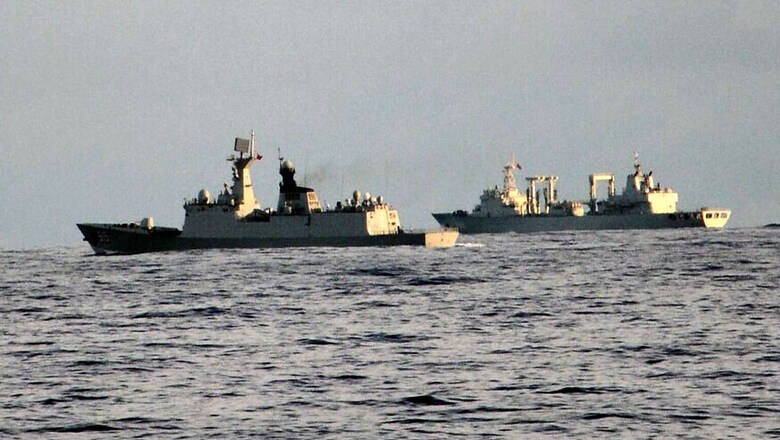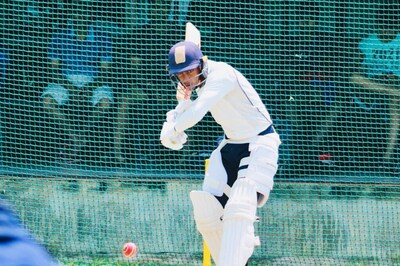
views
New Delhi: Late on Monday night, the Indian Navy sent out a cheeky yet powerful message to its counterpart in China. Taking to its official Twitter handle, the Indian Navy told the Chinese that India was watching the Indian Ocean Region (IOR).
This was perhaps the first time that the Indian Navy had openly commented on the presence of the Chinese fleet in the IOR. Sources in the Navy said that while the tweet was not planned as such, the top hierarchy was kept in the loop throughout.
When asked why the Indian Navy suddenly thought of responding, an official said, “This is our backyard. We have been here constantly monitoring the region and have had 24*7 presence since 2008.”
The 29th Fleet from the Chinese People’s Liberation Army (PLA) had left China’s Zoushan on April 4 for Gulf of Aden and areas off Somali reportedly to escort civilian ships. Indian Navy has previously said that it monitors everything that happens in the IOR but has never said something to this order.
Since 2008, India has had constant presence in the region to fight piracy. The Navy has deployed 69 ships in the Gulf of Aden and escorted 3816 ships. Of this, 3407 were foreign ships.
“We want security and growth for all in the region and have been protecting ships in this region from piracy. We’ll protect the Chinese too from piracy but they should stick to what they say they’re here for-warding of pirates,” News18 was told.
Using #HappyHunting in its cheeky tweet, it ensured that the Chinese got the message to avoid any misadventures. “They said they’ve entered the IOR because of anti-piracy efforts right? Just wanted to remind them that that’s what they’re here for,” sources at the Navy added.
India’s SAGAR v/s Chinese Debt Trap
The economies of India and China depend on the sea routes to an extent of 90% as products like fuel, energy among other things are traded via the waters. As of today, almost 80% of India’s crude oil demand is met via import from the Indian Ocean. India is also the fourth largest importer of liquefied natural gas, with about 45% of it coming via sea lanes.
India’s Security and Growth for All In The Region (SAGAR) has focused on capacity and capability development of smaller navies in the region. Many in the Navy also feel that India’s approach of providing training as compared to the Chinese idea of loans via its Belt and Road Initiative is finding increasing favour among many countries in IOR.
India focuses on mission-based deployment and deploys mission-ready ships and aircraft in important positions and choke points.
“China has inhibitions on other Navies entering the South China Sea and it is well known. However, we respect Freedom of Navigation in International Waters and follow the UNCLOS 100%. But what are they doing so far away from their region in the IOR? This is our backyard that India is mandated to protect it,” the source said.
“We know the Chinese are building ports in various areas here. They never entered the IOR from Maldives because they saw our ships. We’ll continue to protect the region, no matter what. We’ve eyes in the sky and also on land and water,” News18 was told.
And indeed, other than water presence, as part of its biggest combat exercise in three decades, the Indian Air Force (IAF) is carrying out massive drills involving its front line fighter jets to test its capability to dominate the entire extended area of the Indian Ocean region.
China's territorial ambitions in the South China Sea already worry world powers. And the Asian giant’s move into the Indian Ocean has only escalated it.
China extended its military presence by opening a naval base in the eastern African nation of Djibouti last year. Beijing is also building up on its ambitious Belt and Road Initiative, which includes many countries in Asia and Africa. It has built a port in Pakistan's Gwadar, taken a lease on Sri Lanka's Hambantota and also made several investment in Maldives.




















Comments
0 comment